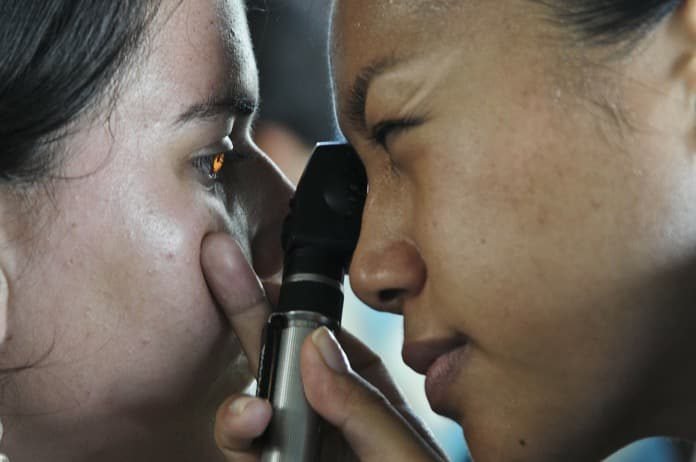There is no medical test that can predict if someone will develop dementia. A recent study investigated if people with a thinner retina were more likely to develop dementia.
Dementias such as Alzheimer’s disease are a major cause of disability and death in older adults. Currently, there is no way of knowing if someone will develop dementia in the future. It is important to be able to detect early signs of dementia because it may be easier to treat the disease when it is in its early stages. Therefore researchers have been actively searching for medical tests that will reveal early signs of dementia. For example, preliminary studies have found that age-related hearing loss and high blood pressure are associated with an increased risk of dementia.
Another possible marker for early dementia is damage to the nerves within the retina of the eye. This is because the same type of neural damage that causes dementias such as Alzheimer’s could also affect neurons within the retina. In line with this, recent studies have found that the layers of retinal nerves are thinner in patients with Alzheimer’s disease compared to healthy people. However, it is not known if this nerve thinning occurs before or after the disease starts. Researchers in the Netherlands therefore set up a study to determine if retinal nerve thinning is an early sign of dementia. They recently published their results in JAMA Neurology.
The Rotterdam Study
Starting in 2007, thousands of people living in Rotterdam, the Netherlands, have been monitored as part of a long-term study. Every few years they were given a medical examination which included retinal optical coherence tomography. This is a non-invasive imaging technique that can accurately measure the thickness of retinal nerve tissue. The researchers used medical records to identify study participants who later dementia. They then compared their retinal nerve thickness at the start of the study to the retinal nerve thickness of participants who didn’t develop dementia.
Retinal nerve thinning is an early sign of dementia
Study participants with thinner retinal nerve layers were significantly more likely to eventually develop Alzheimer’s disease or other dementias. In fact, the quarter of participants with the lowest retinal nerve thickness were 2.5 times more likely to develop dementia compared to the quarter of participants with the thickest retinal nerve layers.
An eye exam may eventually help predict dementia
This is a preliminary study, and the researchers pointed out that it had several limitations. For example, they did not include anyone who had eye problems such as glaucoma or age-related macular degeneration. It also excluded anyone with high blood pressure, or who had had a stroke. This meant that the people in the study tended to be fairly healthy. Therefore it may not have included many of the people who are at greatest risk of developing dementia.
Despite these issues, the researchers conclude that retinal nerve thinning shows great potential as a marker for dementia risk. The non-invasive nature of the optical coherence tomography procedure means that it would be suitable for routine clinical or research use. However, larger studies with more dementia patients are needed to turn retinal nerve thickness measurements and other early signs of dementia into an accurate predictive tool.
Written by Bryan Hughes, PhD
Reference: Mutlu, U., Colijn, J. M., Ikram, M. & et al. Association of retinal neurodegeneration on optical coherence tomography with dementia: A population-based study. JAMA Neurology (2018)



